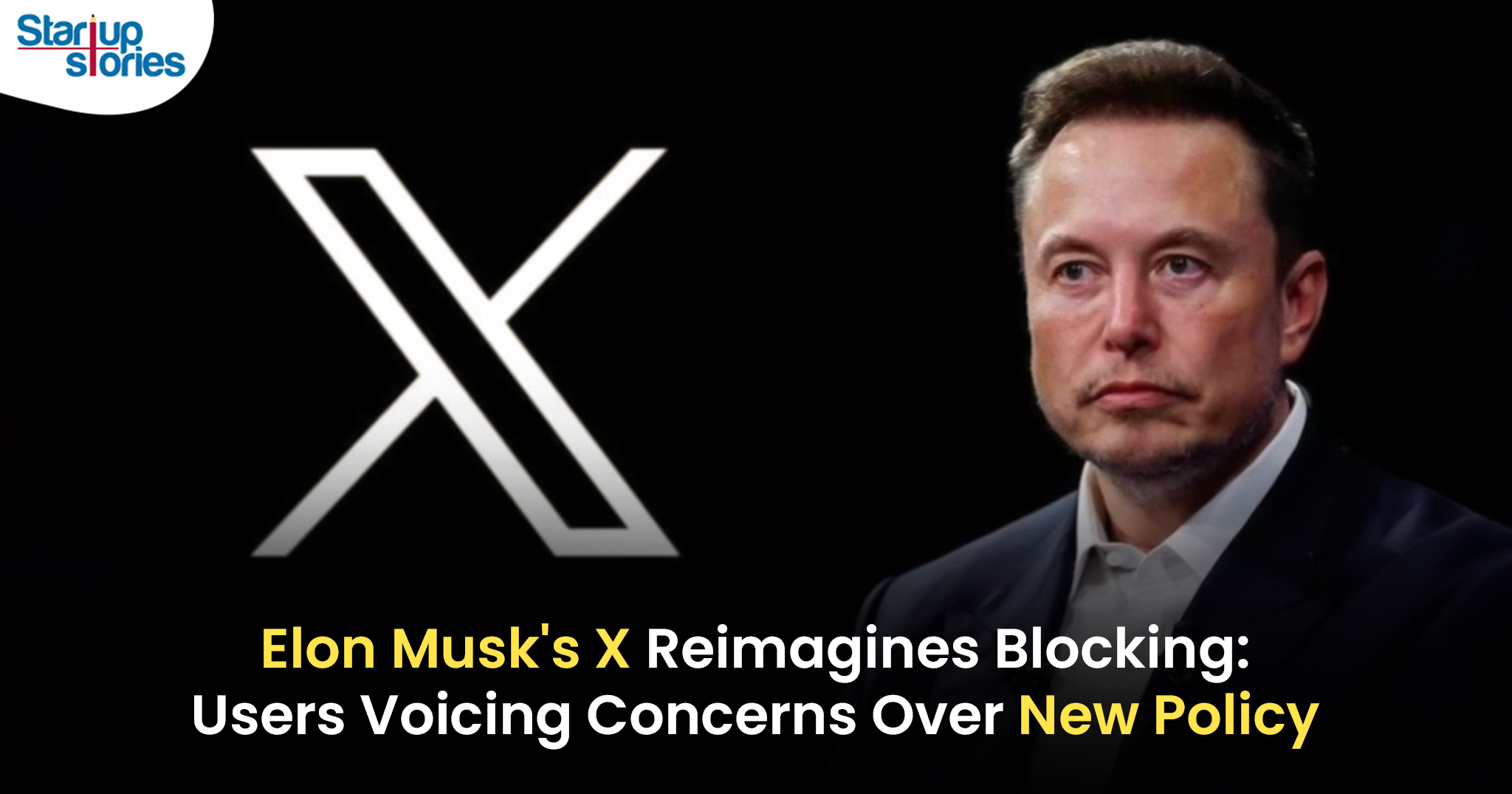Latest News
Elon Musk’s X Redefines Account Blocking: What It Means for Users!

Elon Musk’s social media platform, X, is set to redefine the meaning of blocking accounts, sparking discussions among its billions of users. In a notable shift, blocked accounts will now have the ability to view the posts of the users who blocked them, although they will still be unable to interact with those posts.
Changes to the Blocking Feature
This change is currently being communicated to users through a message appearing on their feeds, stating:
“If your posts are set to public, accounts you have blocked will be able to view them, but they will not be able to engage.”
The transformation stems from Musk’s earlier comments expressing his desire to eliminate the traditional blocking mechanism in favor of a more nuanced approach, akin to muting accounts. Historically, blocking someone on Twitter (now X) meant that users could not see each other’s profiles or posts. However, the new policy allows blocked accounts to access the content of the users who have barred them, fundamentally altering the function of the blocking feature.
Rationale Behind the Change
Musk has long criticized the concept of blocking as a hindrance to open dialogue and information flow on the platform. He believes that allowing blocked users to view public content promotes transparency and accountability. The engineering team at X has stated that this move aims to create an environment where users can be aware of discussions happening around them, even from those who have blocked them.
User Reactions and Backlash
This development has not been well-received by many users, who are frustrated with the idea of blocked accounts being able to view their public posts. Critics question the rationale behind this change and express concerns about the implications for privacy and user experience.
Public reaction has been overwhelmingly negative. Many users have taken to the platform to criticize the engineering team and Musk for the decision. Some comments include:
- “That’s not blocking. It’s supporting stalking,” one comment with over thirty thousand likes stated.
- “So now the Block feature is essentially useless. X keeps bringing its best ideas. I hope this violates the terms of service for the App Store,” another user remarked.
Safety Concerns
Critics also express concerns about potential misuse of the new policy. Users worry that it may embolden stalkers and harassers, allowing them to continue monitoring their targets even after being blocked. Intelligence and defense experts have voiced apprehensions about how this policy could compromise personal safety and create new risks for vulnerable users.
Broader Context of Changes on X
Since Musk’s acquisition of the platform, X has undergone significant transformations, with a clear emphasis on monetization through features like post editing and paid verification badges. These shifts, coupled with changes like the new blocking policy, have led to a decrease in advertising interest, raising concerns about the long-term viability of businesses on the platform as user dissatisfaction continues to grow.
Competitive Landscape
As user dissatisfaction mounts, some individuals are exploring alternative platforms like Bluesky, which has seen a surge in sign-ups amid criticism of X’s policies. The ongoing changes reflect a broader trend in social media where user experience and safety are increasingly scrutinized.
Conclusion
The redefinition of account blocking on Elon Musk’s X marks a significant shift in how users interact with one another on social media. While Musk’s vision aims at promoting transparency and open dialogue, it raises critical questions about privacy and safety for users.
As this new policy rolls out, it remains crucial for X to address user concerns effectively while balancing its goals for innovation and engagement. The outcome will likely shape not only user experience on X but also influence broader discussions about accountability and safety in social media platforms moving forward.
Latest News
Peak XV New Funds: $1.3B Commitment for India Startup Surge 2026

Peak XV Partners has launched three new funds totaling $1.3 billion, targeting India’s booming startup ecosystem. The lineup features the $600M Surge fund (8th edition) for early-stage ventures, a $300M Growth Fund for Series B+ scaling, and a $400M Acceleration Fund for rapid portfolio expansion. This commitment arrives as India’s VC inflows rebound, with AI and fintech leading 2026 trends.
These funds build on Peak XV’s legacy of backing unicorns like Zomato and Pine Labs, offering founders capital plus strategic guidance amid post-winter recovery. Early-stage deals surged 20% last year per Tracxn, positioning Peak XV to fuel the next wave of innovation in SaaS, climate tech, and consumer plays.
For startups eyeing Peak XV new funds or Surge fund 2026 applications, this signals prime opportunities. Investors and marketers should watch for deployment updates India remains a global VC hotspot.
Latest News
D2C Brand Neeman’s Raises $4 Million for Tier 2/3 Store Expansion & Eco-Friendly Shoes

Hyderabad, January 13, 2026 Neeman’s, India’s leading D2C footwear brand famed for sustainable shoes and patented PIXLL® technology, has raised $4 million from existing investors. This funding boosts its cumulative capital past $10 million since 2015, with a post-money valuation nearing $50 million. CEO Vijay Chahoria emphasized offline retail as the “next frontier,” planning 50+ new stores in Tier 2/3 cities like Jaipur and Lucknow to blend eco-friendly innovation with hands-on customer experiences.
In India’s booming D2C ecosystem where footwear sales hit ₹1.2 lakh crore in 2025 Neeman’s targets hybrid retail amid high online CAC and 25-30% returns. Backed by vegan, machine-washable shoes priced ₹2,000-4,000, the brand leverages PIXLL® (5x more breathable than leather) for carbon-neutral comfort. Recent 5x revenue growth to ₹100 crore ARR, 1M+ pairs sold via Myntra and stores, and awards at India D2C Summit 2025 position it ahead of rivals like Paaduks.
Neeman’s offline expansion India eyes the $15B sustainable footwear market by 2028, fueled by PLI schemes, Gen Z’s 70% eco-preference (Nielsen), and Southeast Asia exports. Challenges like real estate costs are offset by data-driven inventory and omnichannel QR tech. Watch for Q1 2026 launches in Hyderabad and Bengaluru redefining D2C success through authentic, “Wear the Change” branding.
Latest News
Centre Mulls Revoking X’s Safe Harbour Over Grok Misuse

The Centre is weighing the option of revoking X’s safe harbour status in India after its AI chatbot Grok was allegedly misused to generate and circulate obscene and sexually explicit content, including material seemingly involving minors. The IT Ministry has already issued a notice to X, directing the platform to remove unlawful content, fix Grok’s safeguards, act against violators, and submit a detailed compliance report within a tight deadline. If the government finds X’s response inadequate, it could argue that the platform has failed to meet due‑diligence standards under Indian law, opening the door to harsher action.
Under Section 79 of the IT Act, safe harbour protects intermediaries like X from being held directly liable for user‑generated content, provided they follow due‑diligence rules and promptly act on legal takedown orders. Revoking this protection would mean X and its officers could be exposed to criminal and civil liability for obscene, unlawful, or harmful content that remains on the platform, including AI‑generated images from Grok. This prospect significantly raises X’s compliance risk in India and could force tighter moderation, stricter AI controls, and more aggressive removal of flagged posts.
The Grok episode also spotlights the regulatory grey zone around generative AI, where tools can create harmful content at scale even without traditional user uploads. Policymakers are increasingly questioning whether AI outputs should still enjoy the same intermediary protections as conventional user posts, especially when they involve women and children. How the government ultimately proceeds against X over Grok misuse could set a precedent for AI accountability, platform responsibility, and safe harbour interpretation in India’s fast‑evolving digital ecosystem.













registrera dig f"or binance
September 24, 2025 at 9:31 am
Your point of view caught my eye and was very interesting. Thanks. I have a question for you.
binance skapa konto
October 12, 2025 at 8:19 am
I don’t think the title of your article matches the content lol. Just kidding, mainly because I had some doubts after reading the article.
J88
November 5, 2025 at 10:57 am
Đến với J88, bạn sẽ được trải nghiệm dịch vụ cá cược chuyên nghiệp cùng hàng ngàn sự kiện khuyến mãi độc quyền.
MM88
November 7, 2025 at 3:02 pm
Khám phá thế giới giải trí trực tuyến đỉnh cao tại MM88, nơi mang đến những trải nghiệm cá cược thể thao và casino sống động.
MM88
November 11, 2025 at 12:51 pm
Với giao diện mượt mà và ưu đãi hấp dẫn, MM88 là lựa chọn lý tưởng cho các tín đồ giải trí trực tuyến.
站群程序
November 13, 2025 at 6:13 pm
搭载智能站群程序,自动化搭建与管理,为SEO项目提供核心驱动力。站群程序
Kuwin
November 16, 2025 at 11:43 pm
kuwin sở hữu kho game đa dạng từ slot đến trò chơi bài đổi thưởng, mang đến cho bạn những giây phút giải trí tuyệt vời.
GO88
November 24, 2025 at 3:46 am
Tham gia cộng đồng game thủ tại Go88 để trải nghiệm các trò chơi bài, poker phổ biến nhất hiện nay.
jili slot free 100
December 19, 2025 at 12:20 am
jili slot free 100 jili slot free 100